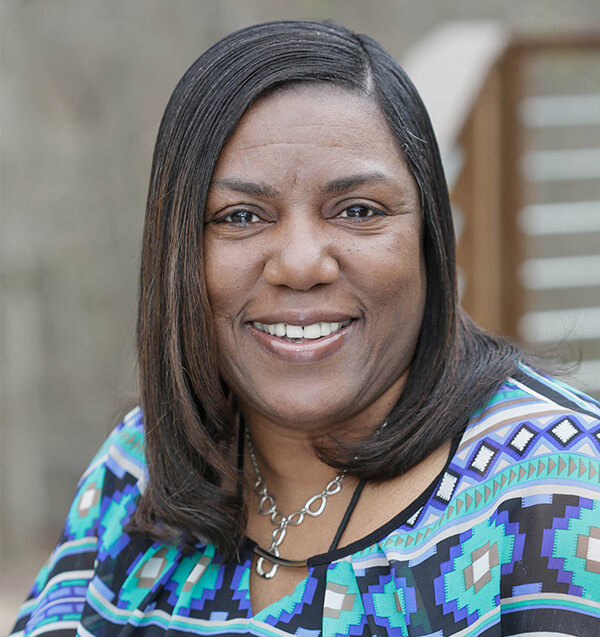Myth #11: I’m Too Old to Go to Treatment
When drug or alcohol problems have been going on for decades, is it too late to change? The truth is that recovery can begin at any age.
For people who have tried and failed to stay clean and sober, time and again, it’s easy to lose hope. Yet in some cases, their maturity and experience can actually become an asset in treatment.
At Oxford Treatment Center, people as old as their late 70s have sought help for drug or alcohol addiction. Outpatient Director Barbara Cox, LSW, MRC, MAC, said age can initially be an obstacle for people as they begin treatment.
“When people have been abusing drugs or alcohol for many years, it’s difficult for them to imagine life any other way,” Cox said. “Often, they come to us depleted, physically and emotionally. They’re convinced their situation is hopeless.”

Outpatient Director Barbara Cox, LSW, MRC, MAC
Cox is a Licensed Social Worker and Master Addiction Counselor with previous experience in vocational rehabilitation. She has worked directly with clients in Oxford Treatment Center’s residential and outpatient programs. Today, she is director of outpatient services in Oxford, Tupelo and Olive Branch.
Cox said one advantage that older adults can have in treatment is a better grasp on the consequences of continuing in addiction. That can often be an abstract concept for young people.
Older clients also tend to be more settled in life. With jobs and families to go home to, they can anticipate and prepare for situations where they would be likely to drink or use drugs again.
“In treatment, we talk through different high-stress situations that they might encounter when they return to their normal life,” Cox said. “We focus on developing new coping skills they can use to respond to those situations. It’s a huge advantage when they can anticipate these situations and have a plan for how to handle them without turning to drugs or alcohol.”
For Linda*, alcohol dependency became a problem after she retired from her career as a schoolteacher. Health issues related to excessive drinking ultimately prompted her to seek help. She had elevated blood pressure, liver function issues, and bruises from stumbling and falling.
“It was hard for me to accept that alcohol was causing all these problems,” Linda said.
“When you’re in the middle of the situation, it doesn’t seem so bad. You can ignore the problems, because you can just numb out again. Until you get sober, you don’t really realize you had a problem.”
Linda started her recovery through the 10-week Intensive Outpatient Program at Oxford Treatment Center’s Tupelo office. There, working with a therapist in individual and group sessions made her feel “heard” in a meaningful way. The therapist also introduced clinical concepts about addiction being a disease, not a moral failing, and about its affects on the brain.
“What I learned helped me understand what was going on in my mind,” Linda said. “I’d always thought it was my own mind and feelings telling me to drink again, so I’d listen. And it always got worse, never better. Once I understood it was my disease talking, I was able to say, ‘Don’t listen.’ It changed my whole life and gave me hope.”
Linda had been struggling with alcohol on and off for 20 years before the problem became serious enough for her to seek treatment.
For other older adults, addiction can set in more quickly as a result of being prescribed pain pills like OxyContin, Percocet or Vicodin. Those opioids look innocent in prescription bottles. But they are actually heroin’s synthetic cousins and are highly addictive.
Cox said she has worked with many clients who never had a drug or alcohol problem until being prescribed pain medication after a surgery.
“In many cases, they were also struggling with depression — and suddenly they discover the feeling of a high,” Cox said. “They say, ‘I never thought I could feel so good again.’ These are people who never dreamed they would find themselves needing treatment for addiction.”
Whether people develop dependency late in life, or have been in and out of treatment for years, Cox said people are never too old to find recovery.
“It involves coming to a place where you’re honest, open-minded and willing,” she said. “And whether you’re a young adult or an older adult, it involves putting your laundry on the table. But it’s worth it.
“People wonder: Can I be successful in life without drugs and alcohol? Yes, you can. It’s being done every day, and the individuals we work with are living proof.”
It is never too late to reclaim your life. Take the first step: Schedule a no-cost clinical assessment at the outpatient office nearest you.
This article originally appeared in the Sept. 24, 2017, edition of The Oxford Eagle newspaper.